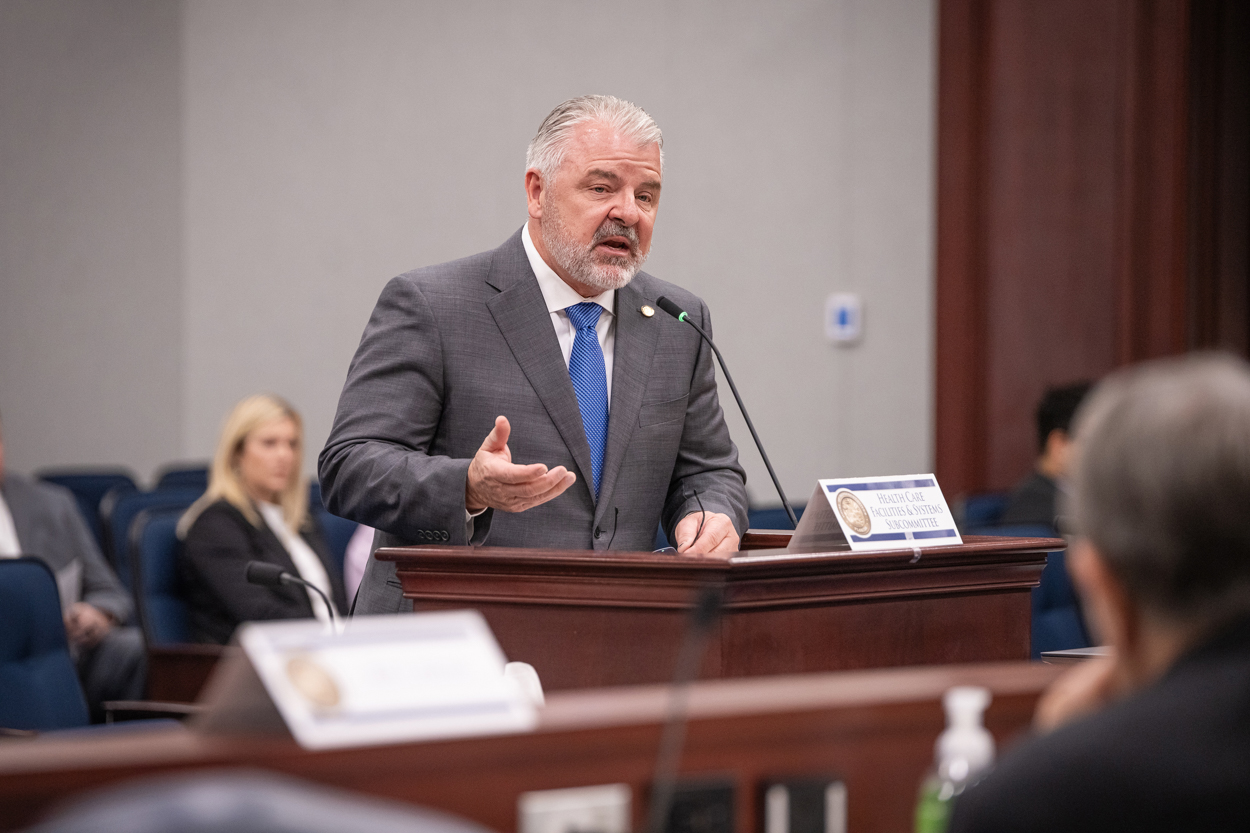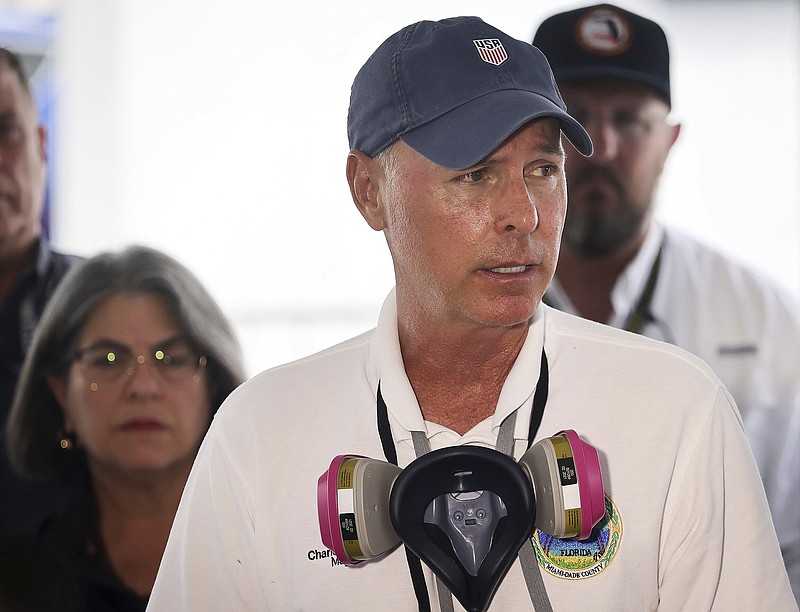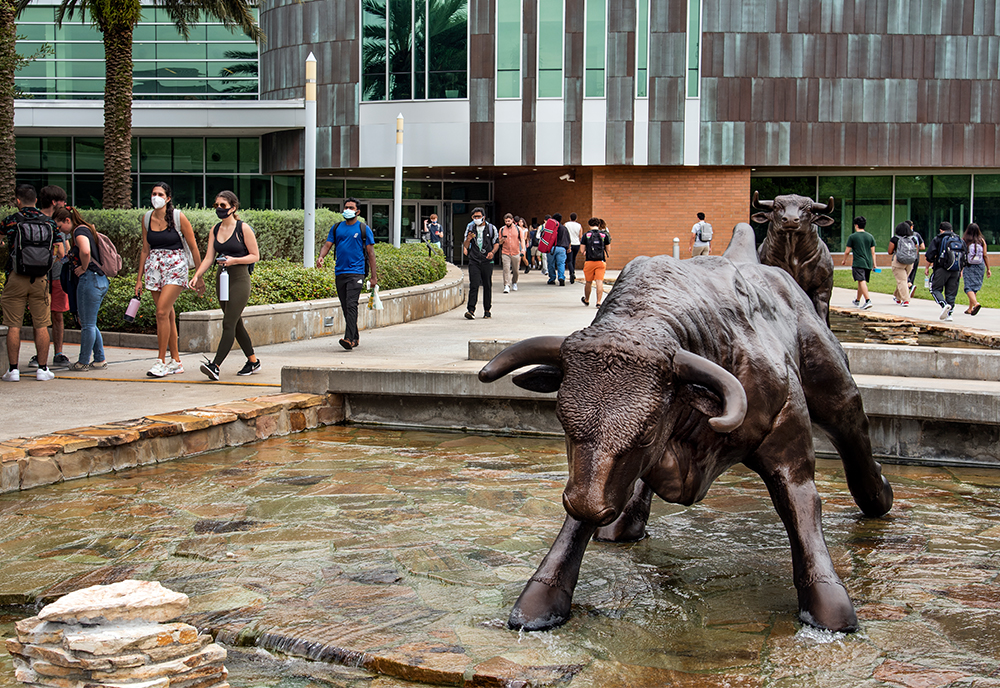Proposed funding in the state’s 2025-26 fiscal year budget could reach at least $955 million in Hillsborough County, according to the House budget from Speaker Daniel Perez.
Top funding recipients include the University of South Florida (USF) and Moffitt Cancer Center, which is affiliated with USF. Among other allocations, USF is poised to receive $324 million for its operating budget, while Moffitt stands ready to receive more than $38 million for general expenditures and another nearly $21 million for things like matching grants and reimbursements.
The proposed budget as it impacts Hillsborough County is, like other areas, heavy on education spending, including $77 million for the Early Learning Coalition of Hillsborough County; $53.2 million for workforce education programs and initiatives; and $31.9 million for voluntary pre-K.
Other funding emphasizes everything from mental health research and treatment to hurricane resiliency and mitigation.
Here are some of the proposed funding items in the proposed House budget impacting Hillsborough County:
— $118.5 million: USF/Florida Medical Center, including for the Center for Neuromusculoskeletal Research, a veteran PTSD study, a traumatic brain injury study and a veteran service center.
— $87.6 million: Hillsborough Community College operating budget.
— $75.7 million: Children’s Network of Hillsborough for community-based care.
— $25 million: USF for research and applied science leading to the creation of new technology.
— $12.7 million: USF medical center.
— $10 million: USF AI, cybersecurity and computing facility.
— $10 million: Florida Center for Cybersecurity at USF to position Florida as a leader in cybersecurity.
— Part of $6.5 million: Agency for Persons with Disabilities to create a pilot program supporting those diagnosed with mental health and developmental disabilities in Hillsborough County, as well as in Broward, Orange and Leon counties.
— $6.3 million: USF for Prepping Institutions, Programs, Employers, and Learners through Incentives for Nursing Education (PIPELINE).
— $5.5 million: USF’s Florida Flood Hub for Applied Research and Innovation.
— $5 million: USF/Florida Center for Nursing for nursing recruitment and retention.
— $4.3 million: Moffitt Cancer Center for the digitization of cancer pathology.
— $4 million: Washington Street improvement from South Tamiami Trail to South 56th Street in Tampa.
— $3.9 million: Hillsborough County Sheriff’s Office helicopter.
— Part of $2.6 million: Funding for lawyers and paralegals dedicated to the prosecution of insurance fraud cases in Hillsborough County, as well as Duval, Orange, Miami-Dade, Palm Beach, Lee and Broward counties.
— $2.5 million: Hillsborough Community College for its Workforce Center on the Plant City Campus.
— $2.5 million: Hillsborough Community College Regional Transportation Training Center.
— $2.5 million: Plant City Lakeside Station Park.
— $2.5 million: Tampa Bay pilot station restoration and reconstruction.
— $1.7 million: USF/Florida Mental Health Institute for autism support.
— $1.6 million: Mental Health Care/Gracepoint in Hillsborough County.
— $1.54 million: The inspHire program (formerly Reentry Plus) for pre-release risk assessment, plan of care, professional development, life management skills training, and referrals for certain incarcerated people, including post-release services such as professional development, job and skills training, family reunification, financial assistance and job placement assistance for qualifying people within Hillsborough, Pinellas, Pasco or Polk counties.
— $1.5 million: USF College of Nursing MoBull Health Unit for rural and underserved areas.
— $1.5 million: Hillsborough County Clerk Records Center.
— $1.5 million: Hillsborough County Sheriff’s Office Aviation Section Hangar.
— $1.5 million: Hillsborough County critical utility infrastructure generators.
— $1.45 million: USF for a multidisciplinary educational service center.
— $880,000: Cuban Civic Club of Tampa interior renovations.
— $859,000: Hillsborough Community College for PIPELINE.
— $850,000: Hillsborough Community College AI program.
— $801,000: USF for need-based financial aid.
— $786,000: Hillsborough Community College for the 2+2 Student Success Incentive Fund supporting student success for associate degree-seeking students and those transferring to bachelor’s programs.
— $750,000: Tampa West River District multimodal network and safety improvements project.
— $750,000: Rebuilding Together Tampa Bay housing recovery project.
— $750,000: Tampa Museum of Art for expanding classical education for all.
— $726,000: Gulf Coast Jewish Family and Community Services’ Noncustodial Parent Employment Program.
— $724,000: Hillsborough Community College for Work Florida Student Success Incentive Fund to support career education programs that meet state and regional demands and high paying job opportunities.
— $724,000: AMIkids gender-specific crime prevention programs in Hillsborough County.
— $600,000: Cove Behavioral Health.
— $525,000: Live Tampa Bay for systems of support for seniors and reducing overdose facilities.
— $500,000: Ronald McDonald House Charities of Tampa Bay for hurricane recovery, mitigation and resilience.
— $500,000: Lowry Park Zoological Society of Tampa for its manatee rescue center.
— $500,000: Tampa Museum of Art centennial expansion project.
— $500,000: USF’s UMatter program expansion.
— $442,000: City of Temple Terrace for enhancing disaster preparedness operations.
— $400,000: Children’s Network of Hillsborough for an emergency infrastructure and response program.
— $393,000: USF’s Tampa referral center.
— $375,000: PIPELINE for performance rewards for postsecondary technical career centers that offer a licensed practical nurse program.
— $375,000: Pinellas & Hillsborough County Youth Advocate Program.
— $375,000: Pasco, Pinellas, and Hillsborough County Youth Advocate Program.
— $375,000: Habitat for Humanity of Hillsborough County for Resilient Homes for Heroes.
— $325,000: Camelot Community Care for the Hillsborough County High Risk Adoption Support Program.
— $325,000: Hillel Jewish Student Center of Tampa for Jewish Life on College Campuses: Physical and Cultural Safety.
— $297,000: USF for HIV/AIDS issues.
— $250,000: USF occupational safety grant match.
— $225,000: USF for the Comprehensive Children’s Kidney Failure Center.
— $200,000: Tampa Firefighters Museum enhancements.
— $194,000: Student Success in Career and Technical Education Incentive Fund for high performing school district technical centers to establish new programs in high demand areas.
— $153,000: USF behavioral health.
— $152,000: USF disease management.
— $150,000: Lowry Park Zoological Society of Tampa.
— $132,000: Hillsborough County Fire Rescue air boats and trailers.
— $125,000: Cuban Civic Club of Tampa renovations.
— $81,000: USF policy exchange.
— $50,000: Al Downing Tampa Bay Jazz Association building feasibility study.
— $45,000: USF regional perinatal intensive care.
— $40,000: Tampa Metropolitan Youth Orchestra.
The House proposed budget also authorizes $5,000 in pay additives for sworn law enforcement officers and for certain non-sworn Florida Highway Patrol personnel.
At $112.95 billion, the House budget is $4.4 million less than the Senate’s proposed budget and $2.7 billion less than Gov. Ron DeSantis’. It includes a historic slash to state sales tax, from 6% currently to 5.25%, which House leadership says would save Floridians about $5 billion a year on taxable goods and services.
That proposal is at odds with DeSantis, who has instead proposed eliminating property taxes, and from Senate President Ben Albritton who hasn’t elaborated on tax cuts, saying only that he’s open to structural tax changes at some point.
The House plan also directs $12 billion into the state’s reserves, and it includes $100 million for veteran teachers, a move meant to provide a pay bump to experienced educators after DeSantis’ priority increase to starting pay cleared to help the state recruit new teachers.
Other highlights include increasing per student funding by $60, fully funding the state’s Bright Futures scholarship program and directing $765 million for maintenance and capital programs in public education through undergraduate programs.
The budget would also allocate $285 million for affordable housing programs, including the state’s Hometown Hero program that assists first-time homebuyers with startup costs.
On the environment, the House budget would set aside $300 million for rural and family land conservation and $200 million for the Resilient Florida Conservation grant program, while allocating $600 million to clean drinking water initiatives.
Post Views: 0

 Entertainment8 years ago
Entertainment8 years ago
 Politics8 years ago
Politics8 years ago
 Entertainment8 years ago
Entertainment8 years ago
 Entertainment8 years ago
Entertainment8 years ago
 Tech8 years ago
Tech8 years ago
 Tech8 years ago
Tech8 years ago
 Tech8 years ago
Tech8 years ago
 Politics8 years ago
Politics8 years ago










